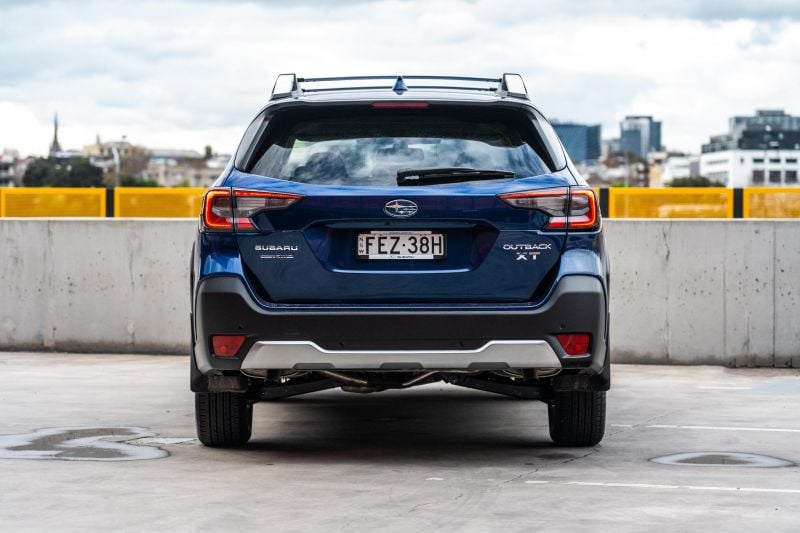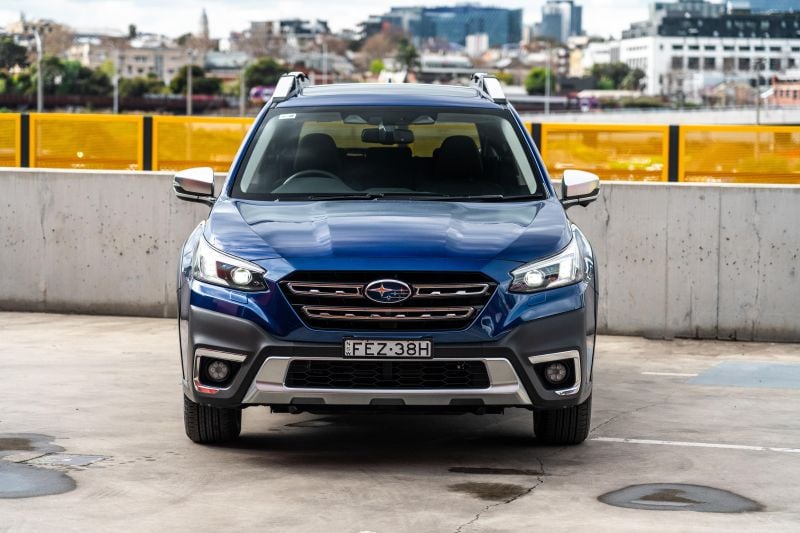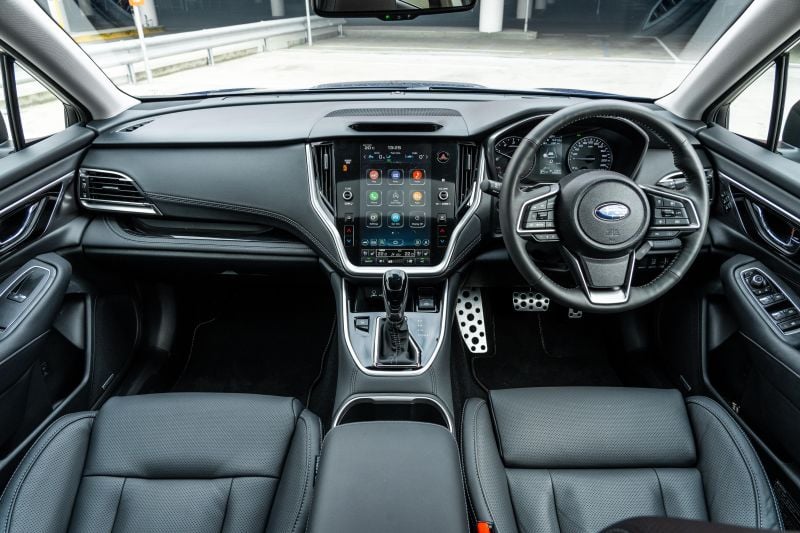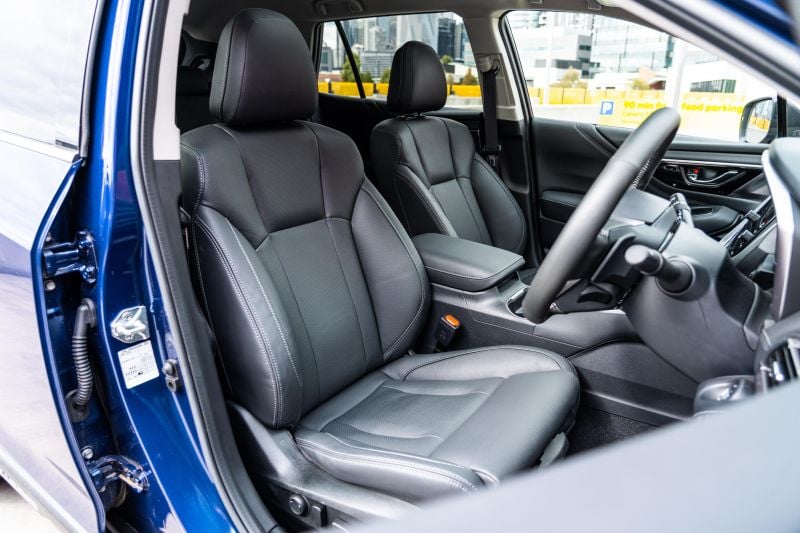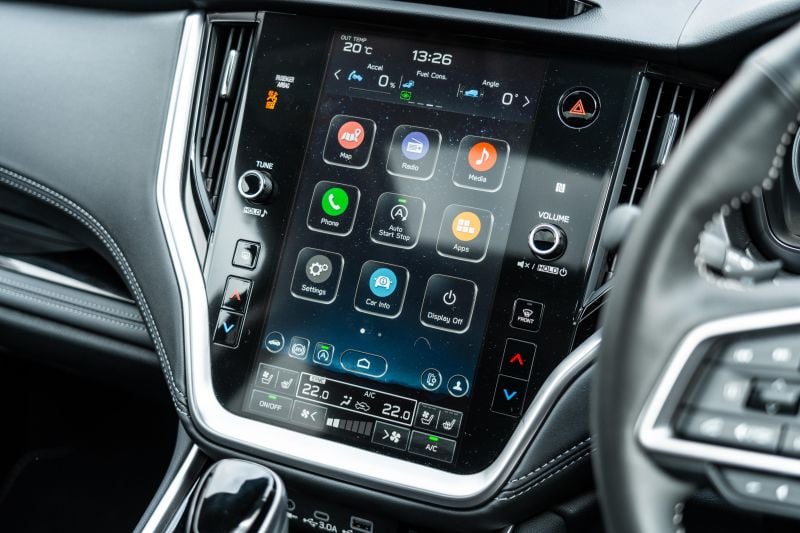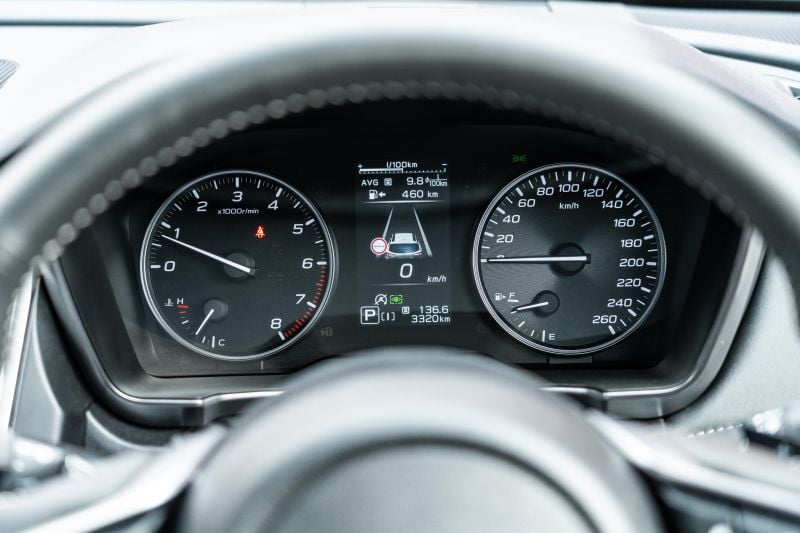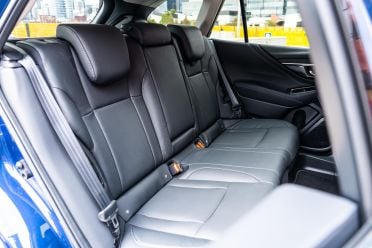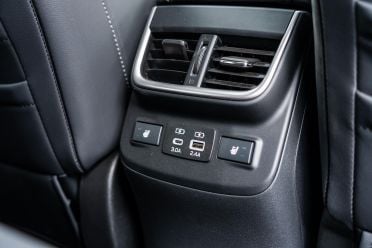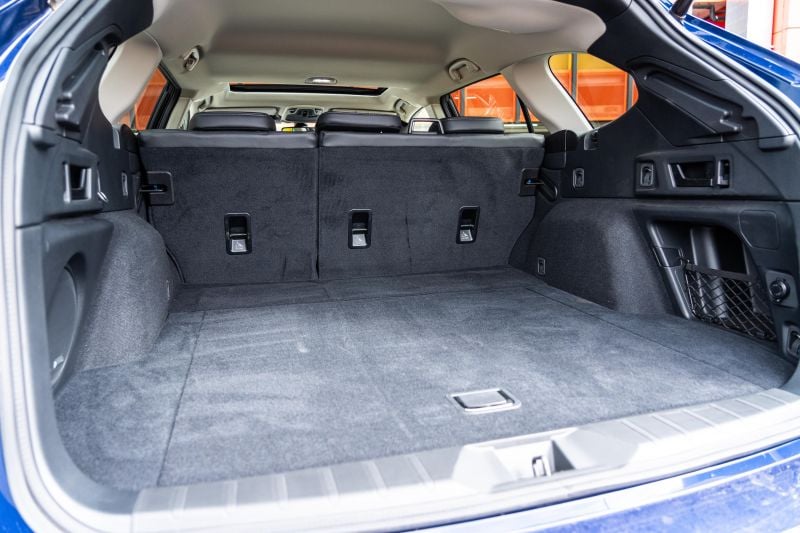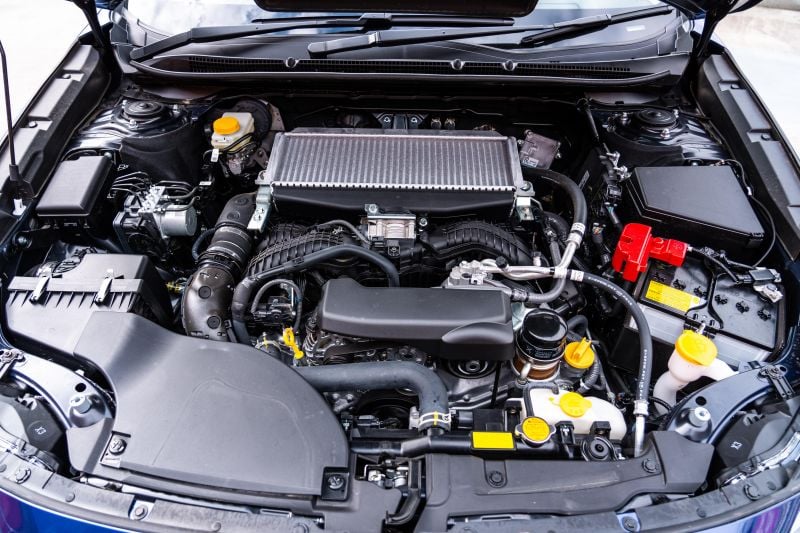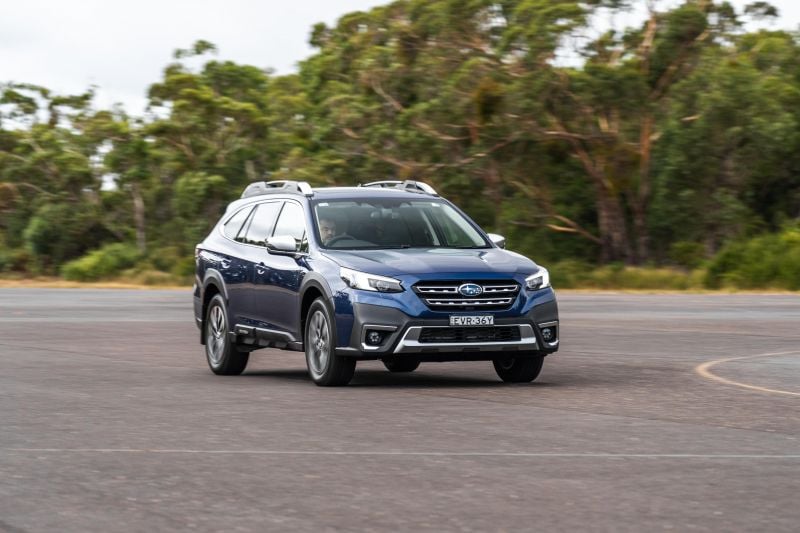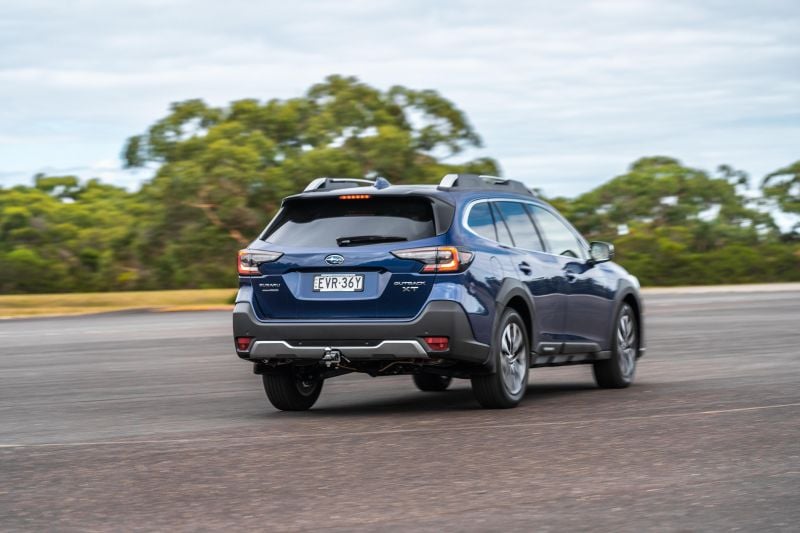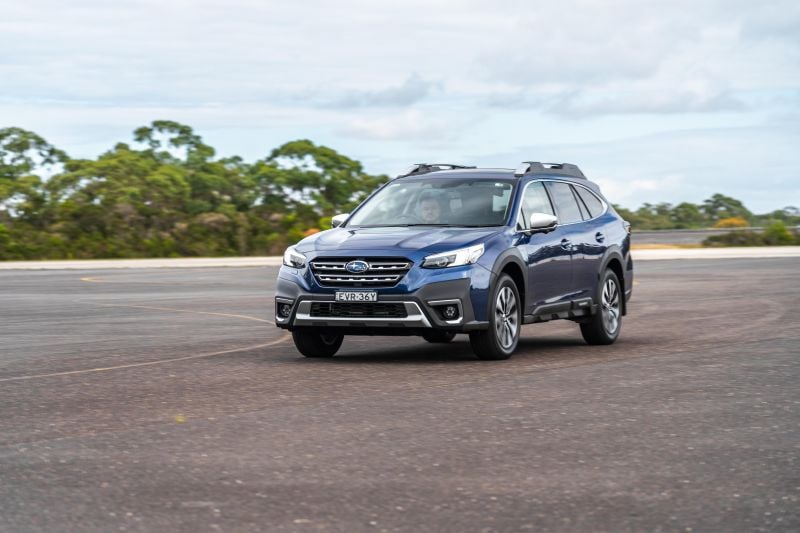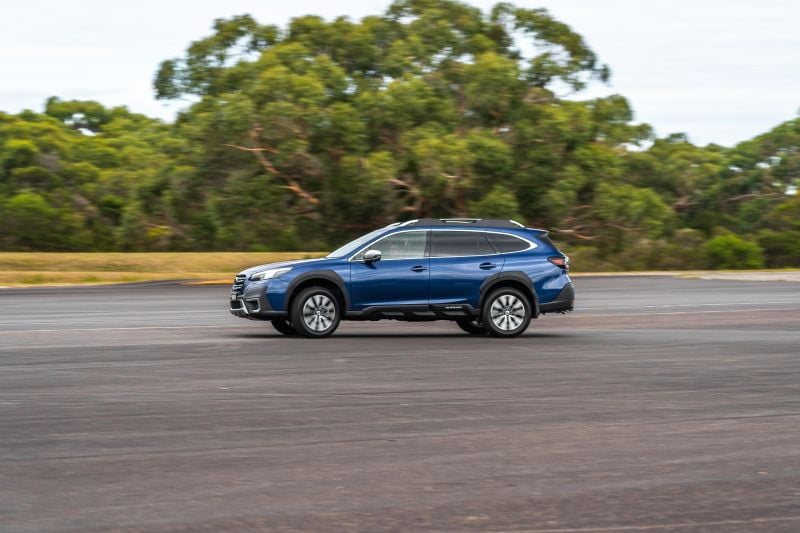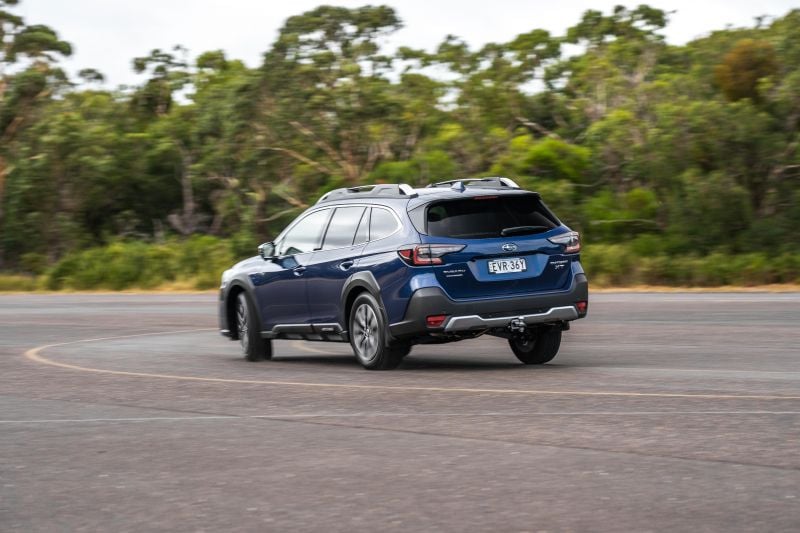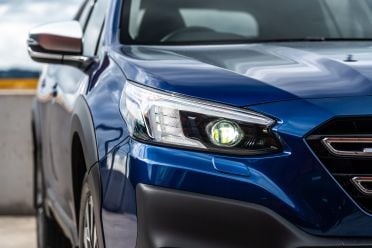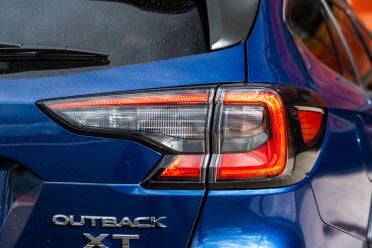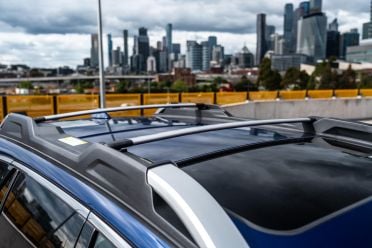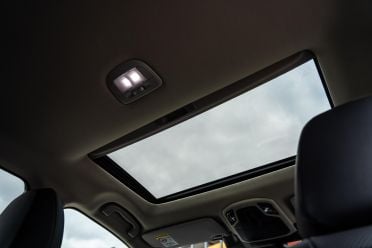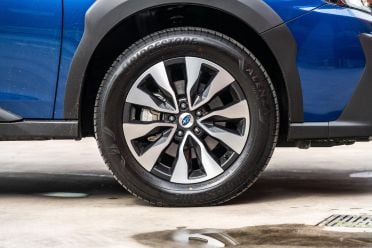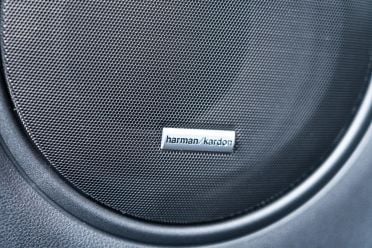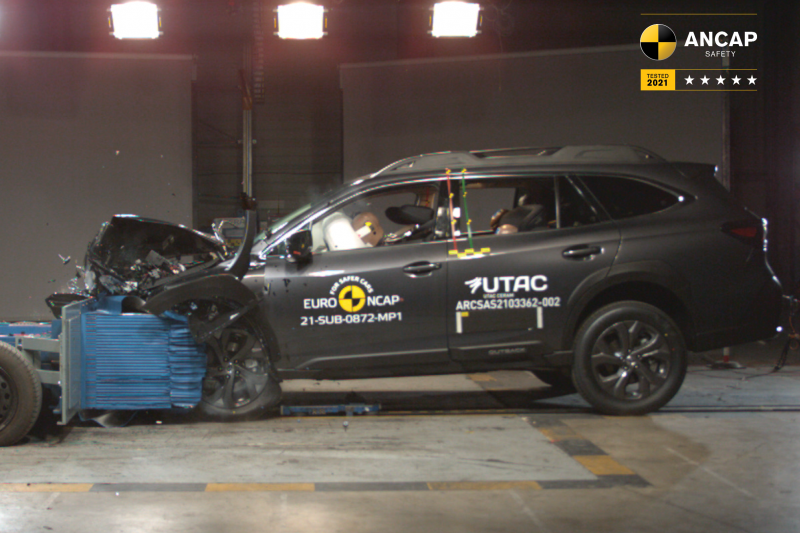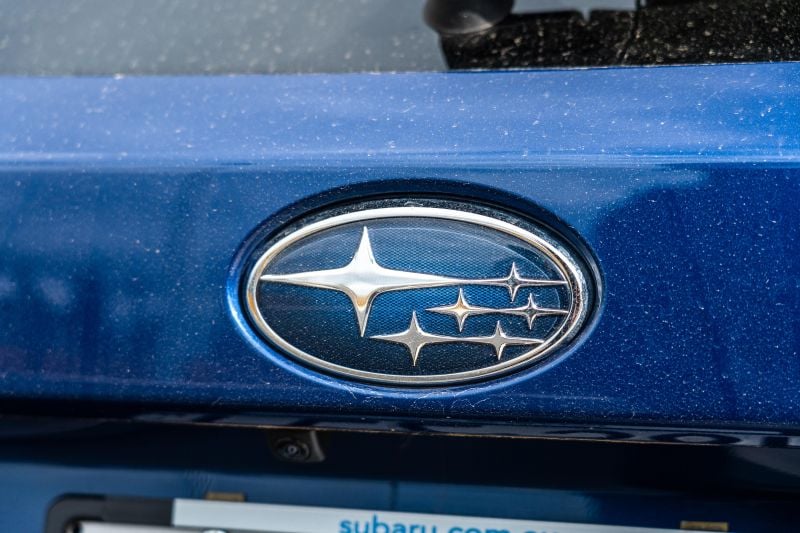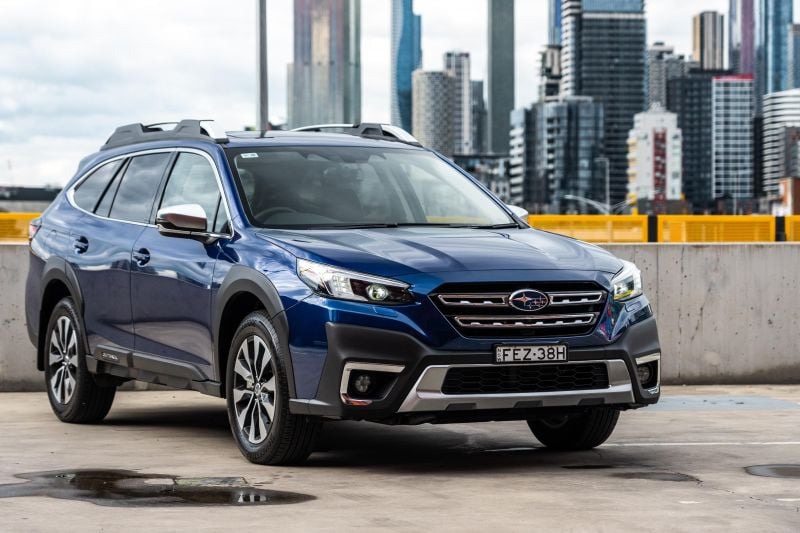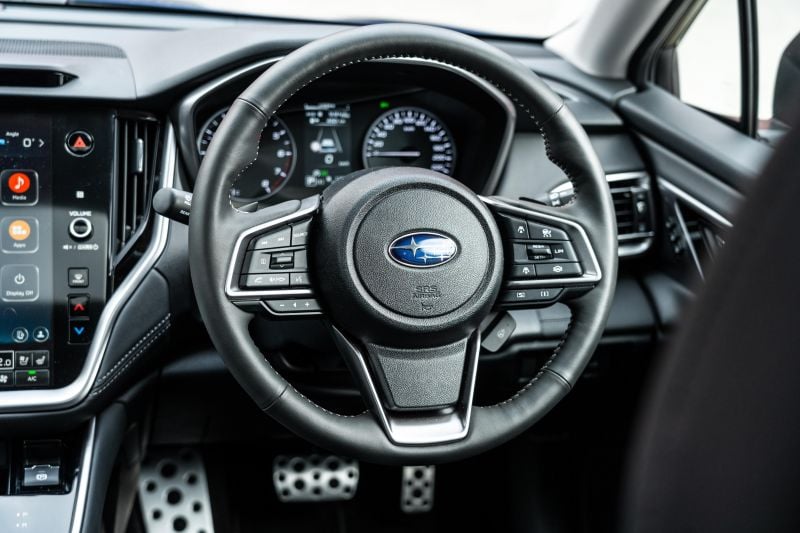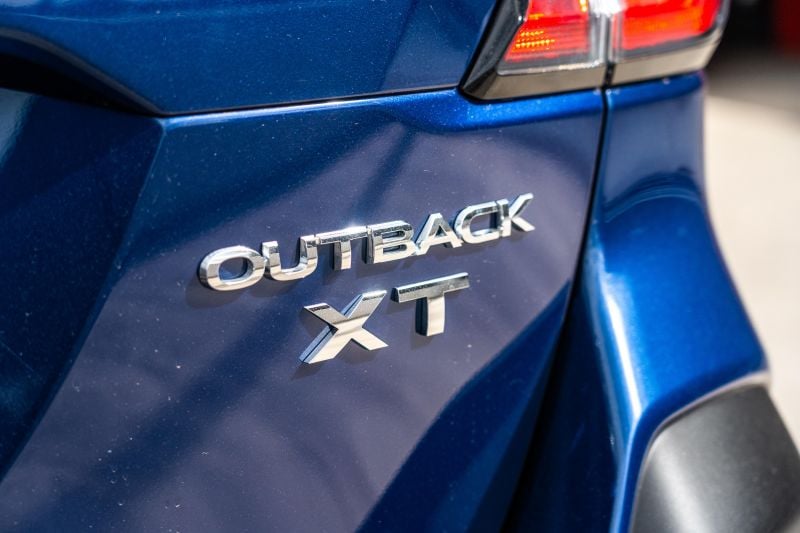The Subaru Outback might not look like a large SUV but I promise you, it is… according to our sales charts.
As new car buyers gravitate towards tall and boxy family cars, many built on ladder frames, Subaru continues to shift lifted wagons with DNA stretching back decades.
The Japanese carmaker has sold 6643 examples of the Outback locally to the end of July, making it the third best selling large SUV going around.
It’s not like Subaru has pulled a rabbit out of a hat to achieve that, either. The Outback entered 2024 relatively unchanged, aside from price rises across the board.
Speaking of value, on test here is the Outback Touring AWD XT, the flagship of the range. Well, kind of. A special edition Sport Touring XT is currently available, but only for a limited time.
The Touring XT has essentially all the equipment Subaru has to offer, with WRX power under the bonnet.
But in the absence of year-on-year upgrades, has it dropped back to the ever-growing pack?

How much does the Subaru Outback cost?
The Touring XT usually takes pride of place at the top of the range, but for now it has surrendered that honour to the limited run Sport Touring XT.
| Model | Price before on-roads |
|---|---|
| 2024 Subaru Outback AWD | $43,690 |
| 2024 Subaru Outback AWD Premium | $47,190 |
| 2024 Subaru Outback AWD Sport | $48,190 |
| 2024 Subaru Outback AWD Touring | $51,990 |
| 2024 Subaru Outback AWD Sport XT | $53,190 |
| 2024 Subaru Outback AWD Touring XT | $56,990 |
| 2024 Subaru Outback AWD Sport Touring XT | $57,490 |
To see how the Subaru Outback stacks up against a its competitors, check out our comparison tool.
What is the Subaru Outback like on the inside?
The interior of the Subaru Outback won’t win any awards for innovation, but it’s practical and well equipped in Touring XT specification.
Upgraded kit and materials set the almost-flagship Touring XT apart from models further down the food chain, as the cabin tech across the range isn’t what you’d call standout.
Soft Nappa leather seats set the scene here, complete with heating and ventilation functions for the driver and front seat passenger.
Temperature control? Check. Electric adjustability passes the convenience test. But what about comfort? That gets a tick as well – the seats have plenty of squidge like your favourite armchair, just don’t expect much lateral support for spirited driving, not that you should need it in a car like this.
The steering wheel has a similar feel, it’s soft with a premium finish. Likewise the armrest, door cards, and dash.
Unfortunately gloss black plastic makes an appearance around the shifter, which is a material that’s known to scratch up easily.
The plastics used for the buttons and other trim are a little less tactile, but that’s to be expected from a car in this price bracket. A sunroof keeps the space feeling bright and airy despite the dominance of black materials.
While the surfaces in the Touring XT do plenty of heavy lifting, the technology doesn’t help elevating the interior. All variants are fitted with a 11.6-inch vertical touchscreen infotainment system. Size isn’t the issue here, however.
The screen is busy, split into three sections – top for live vehicle data, a main middle section, and climate controls below.
The cluttered layout creates particular issues when wireless smartphone mirroring is active, as Apple CarPlay fits awkwardly in the area available. Icons are too small, and it becomes difficult to use touch functionality on the move.
I get the feeling a separate, physical set of climate controls would solve this problem. After all, Subaru has included buttons and knobs for temperature, audio volume, and radio tuning alongside the screen.
On several occasions during our testing period it seemed as if there was a ghost in the machine, with the radio coming to life seemingly of its own accord.
The infotainment screen also has a dated look, with cartoonish graphics and an aging navigation system. It checks out, given the Outback still has a CD player.
There’s no doubting the simplicity of the instruments in the Outback, which come in the form of analogue dials and a small centre display. It’s a functional setup, but not one that’s overly attractive or configurable.
You can flick through a few readouts via buttons on the steering wheel. Connectivity up front is covered by a USB-A outlet, USB-C outlet and an auxiliary jack, another feature you don’t see very often these days.
While the Outback isn’t a leader on the technology front, it remains as practical as ever.
Items of various shapes and sizes can be stored in shallow door bins, a large glovebox, large centre cupholders, a shallow tray above the glovebox, a two-tier armrest bin, plus a sunglasses holder.
Second row passengers are also well catered for.
There’s enough leg- and headroom for taller adults, and soft seatbacks to protect cramped knees. Both outboard seats are heated, too.
USB-A and USB-C outlets ensure that smartphones and tablets will never run flat. Kids can load up on books, toys and electronics for long roadtrips, with the ability to stash things away in two-tier map pockets and small door bins.
Kids of all ages are welcome; ISOFIX anchors are fitted to the outboard seats as well as top-tethers on the back of all three rear seats.
Suitcases or large dogs will likely be relegated to the boot, where there’s 522L of cargo space.
That’s not a huge number when compared to seven-seaters in five-seat configuration, but the numbers don’t tell the full story.
The Subaru Outback will swallow just about everything you need for a weekend away. It has a powered boot lid, the aperture is large, and a low load lip makes it easy to place and slide items.
Easily accessible levers drop the rear seats, expanding boot capacity to 1267L. The Touring XT comes with a full-sized spare wheel.
| Dimensions | Subaru Outback Touring XT |
|---|---|
| Length | 4870mm |
| Width | 1875mm |
| Height | 1675mm |
| Wheelbase | 2745mm |
| Cargo capacity | 522L (5-seat) 1267L (2-seat) |
To see how the Subaru Outback stacks up against a its competitors, check out our comparison tool.
What’s under the bonnet?
| Specifications | Subaru Outback Touring XT |
|---|---|
| Engine | 2.4-litre 4cyl turbo Boxer |
| Power | 183kW |
| Torque | 350Nm |
| Transmission | Continuously variable transmission (CVT) |
| Driven wheels | All-wheel drive |
| Weight | 1770kg (kerb) |
| Fuel economy (claimed) | 9.0L/100km |
| Fuel economy (as tested) | 11.1L/100km |
| Fuel tank capacity | 63L |
| Fuel requirement | 95 RON |
| CO2 emissions | 204g/km |
| Emissions standard | Euro 6 |
| Braked tow capacity | 2400kg |
To see how the Subaru Outback stacks up against a its competitors, check out our comparison tool.
How does the Subaru Outback drive?
The Subaru Outback makes life easy on the road.
From the moment you get behind the wheel, you get a sense that the car wants to work with you rather than against you – it’s approachable in a way that not all modern cars are.
A press of the start/stop button fires up the familiar Subaru boxer four-cylinder with its distinctive tone, although it’s quite muffled here.
The driving position is low enough for the Outback to seem sporty and agile, but elevated enough to provide the secure feeling of driving an SUV.
Setting off, the Outback is surefooted, offering all-wheel drive grip in all conditions. Especially on wet roads, it’s confidence inspiring to be able to accelerate and change directions without losing any traction.
Subaru and all-wheel drive go hand in hand – it’s a selling point for the brand, setting the Outback apart from similarly equipped SUVs that send power to two wheels.
Around town, the drivetrain in this turbocharged version of the Outback also contributes to a smooth driving experience.
With 183kW and 350Nm the Touring XT isn’t lacking grunt, and those outputs are easily drawn on in everyday driving.
Acceleration from traffic lights and stop signs is instantaneous and linear – the CVT transmission delivers power without too much fuss.
Changing lanes isn’t much fun though, as the indicator stalks don’t click into place, often leaving you guessing which setting they’re in.
The turbo Outback is by no means fast, or event sporty, but it covers ground effortlessly like a good tourer.
Excessive engine/exhaust noise is common in Subaru engines and CVT automatics when you put your foot down, but that’s not the case here.
The CVT here is smooth and intuitive, keeping revs within an acceptable band. No whining racket to be heard under this bonnet.
When navigating city traffic, auto hold is on hand to ease the driving load, while auto start/stop offers both NVH and fuel saving benefits.
That’s not to say the Touring XT is efficient, because it isn’t. Average fuel consumption across our test was 11.1L/100km, which doesn’t quite cut the mustard in the age of electrification.
It’s a small blemish on the Outback’s otherwise excellent report card. Which brings me to ride comfort.
The Outback deals with imperfections in the road with a soft, supple ride that isn’t upset regardless of surface and speed. It keeps the world outside in a way we’ve come to expect of bigger, more expensive cars.
The aforementioned bulky, cushy SUVs aren’t as capable as an Outback on a winding country road, though.
A lower centre of gravity and all-wheel drive helps it to remain relatively flat through corners, while steering is direct and well-weighted.
Whether it’s a rural road or busy highway, occupants are well insulated from road and wind noise. Relaxing is the best word that I can find to describe what it’s like to pilot an Outback.
The Outback is equipped with lane centring, blind-spot monitoring and rear cross-traffic alert, all of which work effectively.
You’ll find cameras everywhere, front, side and rear, so parking is a breeze despite the 4.87m length of the vehicle.
However, there’s one system I wasn’t so fond of. In my experience adaptive cruise control struggled to maintain a consistent speed, often falling 5-10km/h below the set speed. The system was particularly sluggish in traffic, which I was exposed to regularly throughout our test period.
Likewise, the EyeSight system was too often responsible for an abundance of annoying beeps and bongs that quickly gets on your nerves. With that said, speed camera alerts are useful when provided in a palatable way.
To see how the Subaru Outback stacks up against a its competitors, check out our comparison tool.
What do you get?
Outback AWD standard equipment:
- 11.6-inch vertical touchscreen infotainment system
- Wireless Apple CarPlay, Android Auto
- 4.2-inch trip computer
- DAB+ digital radio
- Cloth upholstery
- Body-coloured mirrors
- Roof rails with integrated cross bars
- Grey 18-inch alloy wheels
- Dual-zone climate control
- Paddle shifters
- 6-speaker sound system
- 4 x cargo hooks in the boot
- Automatic windscreen wipers
- Auto-dimming rear-view mirror
Outback Sport and Sport XT add:
- Water repellent sports seat trim
- Heated front seats
- Heated rear outboard seats
- Front- and side-view cameras
- Black exterior highlights
- Hands-free power tailgate
- Satellite navigation
- Dark metallic 18-inch alloy wheels
Outback Touring and Touring XT add:
- 9-speaker Harman Kardon sound system
- CD player
- Nappa leather upholstery
- Ventilated front seats
- Manually-adjustable driver’s seat thigh support extender
- Electric sunroof
- Heated steering wheel
- Silver roof rails with integrated cross bars
- Gloss finish 18-inch alloy wheels
- Black interior (standard), or Black/Ivory (no-cost option) or Tan ($590)
- Removes black exterior highlights
Outback Sport Touring XT Special Edition adds:
- Exclusive Geyser Blue exterior paint
- Green exterior accents
- Black boot badges
- Dark metallic alloy wheels
- Crystal Black rear spoiler
Is the Subaru Outback safe?
The Subaru Outback has a five-star ANCAP safety rating, based on testing conducted in 2021.
| Category | Subaru Outback |
|---|---|
| Adult occupant protection | 33.56 out of 38 (88 per cent) |
| Child occupant protection | 44.62 out of 49 (91 per cent) |
| Vulnerable road user protection | 45.40 out of 54 (84 per cent) |
| Safety assist | 15.40 out of 16 (96 per cent) |
Standard safety equipment includes:
- Autonomous emergency braking (AEB)
- Pedestrian, Cyclist detection
- Junction assist
- Rear AEB
- Blind-spot monitoring
- Rear cross-traffic alert
- Driver attention monitoring
- Lane departure warning
- Lane-keep assist
- Autonomous emergency steering
- Traffic sign recognition
- Reversing camera
- Rear parking sensors
Outback AWD Sport adds:
How much does the Subaru Outback cost to run?
The Outback is covered by a five-year, unlimited-kilometre warranty, like the rest of the Subaru range.
Service intervals differ depending on variant, but turbocharged XT models require maintenance every 12 months or 15,000km.
| Running costs | Subaru Outback Touring XT |
|---|---|
| Warranty | 5 years, unlimited kilometres |
| Roadside assistance | 12 months |
| Service intervals | 12 months or 15,000 kilometres |
| Capped-price servicing | 5 years |
| Total capped-price service cost | $2646 |
To see how the Subaru Outback stacks up against a its competitors, check out our comparison tool.
CarExpert’s Take on the Subaru Outback
The only constant in life is change, and anyone who doesn’t progress quickly risks being left behind. However, the Subaru Outback shows that there’s still room for cars that are more yesterday than space-age futuristic.
It doesn’t have the newest and best technology or crazy design language, both of which wow punters at product launches.
But that’s okay. It’s a comfortable and practical family car with plenty of space, enough modern luxuries, and a best-of-both-worlds wagon body style.
In Touring XT guise the Outback also performs well on the road, with a powerful turbocharged engine, smooth transmission, and compliant suspension.
The Outback also manages to be safe without relying on intrusive nannies.
SUV alternatives are aplenty, but few present with the same combination of characteristics listed above. The list narrows even further if you’re after a wagon.
With that in mind, this timeless Subaru is definitely worth your time. What’s more, this is the variant I’d buy.
Click the images for the full gallery
MORE: Buy a Subaru Outback
MORE: Everything Subaru Outback





